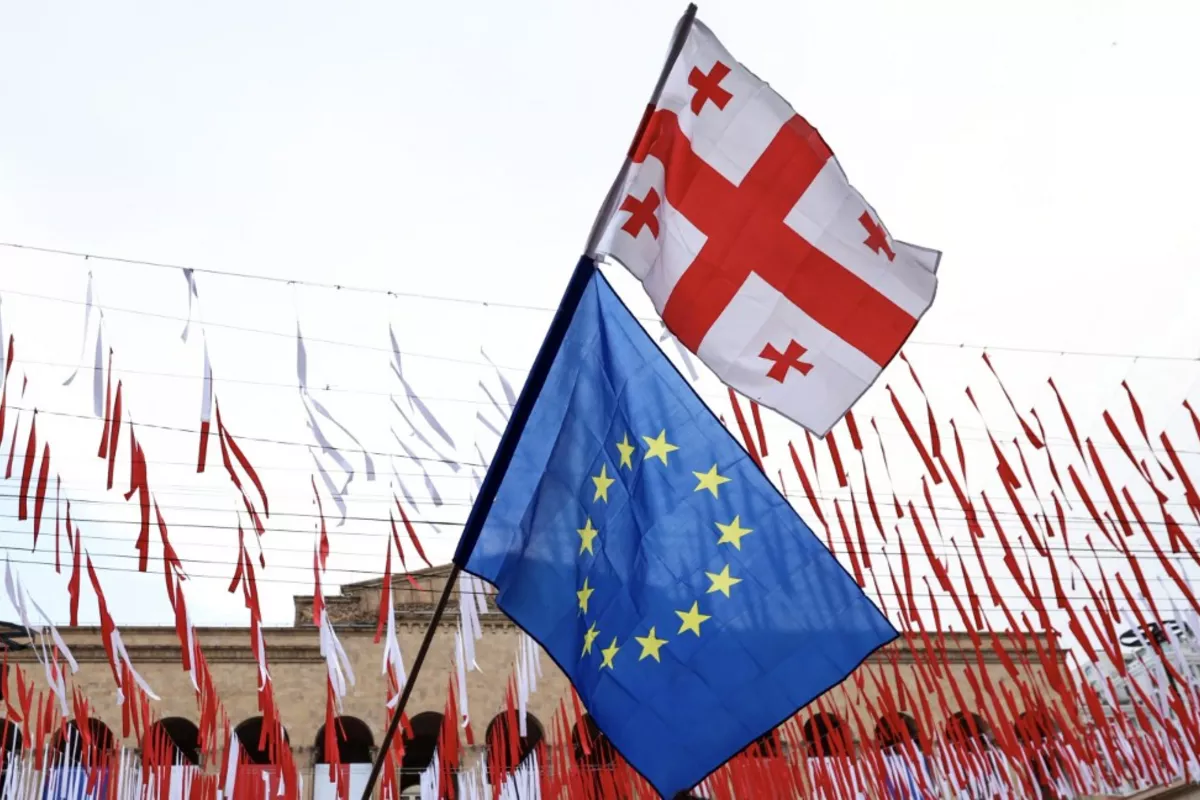
Giorgi Arjevanidze/AFP via Getty Images Opinion
Opposition leaders, civil activists, and thousands of ordinary citizens are preparing for what they say will be a historic moment: a massive October 4 rally that, in their words, will mark Georgia’s “return to European integration,” The Caspian Post reports citing Georgia Today.
But the protest isn’t just about Europe. It’s about power, corruption, and a bitter contest over the future of the country.
Levan Sanikidze, a longtime figure in the United National Movement (UNM), stood in front of cameras earlier this week and laid it out plainly. “October 4 is the day we get back on track,” he said. “The day we say, ‘enough.’” Despite UNM chairman Levan Khabeishvili being behind bars, his presence looms large.
From prison, Khabeishvili continues to post statements, urging Georgians to rise above party divisions and confront what he calls a government captured by Russian interests.
“Will it be difficult? Yes,” Khabeishvili wrote in a recent message from his cell. “Is victory possible? Absolutely.”
The movement organizing the rally is a mix of political opposition, civic groups, and disillusioned citizens-many of whom say they’re tired of watching Georgia’s democratic promises fade. To them, the rally is not just a protest, but a last stand for a European future. Ana Tsitlidze, another prominent UNM voice, believes momentum is already building. Speaking on television, she hinted that even members of the ruling Georgian Dream party might break ranks. “Seventy percent is already in place,” she said, eyes sharp. “There are cracks in the system. And we know it.”
But in the government’s eyes, the gathering on October 4 is not an act of democratic expression-it’s a threat. And now, they say, it’s more than just an internal one.
Prime Minister Irakli Kobakhidze didn’t mince words when he stepped up to a podium days ago. The rally, he claimed, isn’t just being fueled by opposition rhetoric-it’s being stoked by foreign powers. More specifically: Ukraine.
According to Kobakhidze, Georgian law enforcement recently intercepted 2.4 kilograms of military-grade explosives-hexogen-being smuggled into the country. Two Ukrainian nationals were arrested. The Prime Minister alleged that the explosives were handed over by none other than Ukraine’s Security Service (SBU), implying direct involvement by a foreign intelligence agency in what he suggests could be an attempt to destabilize Georgia.
“These are not just rumors,” Kobakhidze said gravely. “This is a direct violation of our sovereignty.”
In Ukraine, the reaction was swift-and furious. Officials flatly denied any involvement, calling the claims politically motivated and lacking evidence. They demanded transparency. Proof. Something beyond accusations aired on national television. So far, Georgian authorities have not released independently verified documentation to support the claims.
This isn’t the first time such accusations have surfaced. Over the past two years, the Georgian government has occasionally floated the idea of a “second front” being opened by Ukraine-an effort, they say, to drag Georgia into the war with Russia. Each time, critics-both local and international-have questioned the timing and the motives behind the claims.
“This playbook isn’t new,” said one regional analyst, speaking anonymously. “When domestic pressure rises, the government points the finger outside. It creates fear. It buys time.”
Back on Rustaveli, though, the mood among organizers is defiant. They say no amount of intimidation will stop what’s coming on October 4. Many believe this moment will determine whether Georgia slides further into political stagnation-or takes a bold step back toward the West.
“It’s not about one party,” said one young activist. “It’s about the soul of this country. And we’re not going to let it be stolen.”
As the days tick down, the stakes keep rising. For the opposition, October 4 is a test of will. For the government, it’s a potential security threat. And for Georgia, it may be one of the most pivotal days in its modern history.
Share on social media